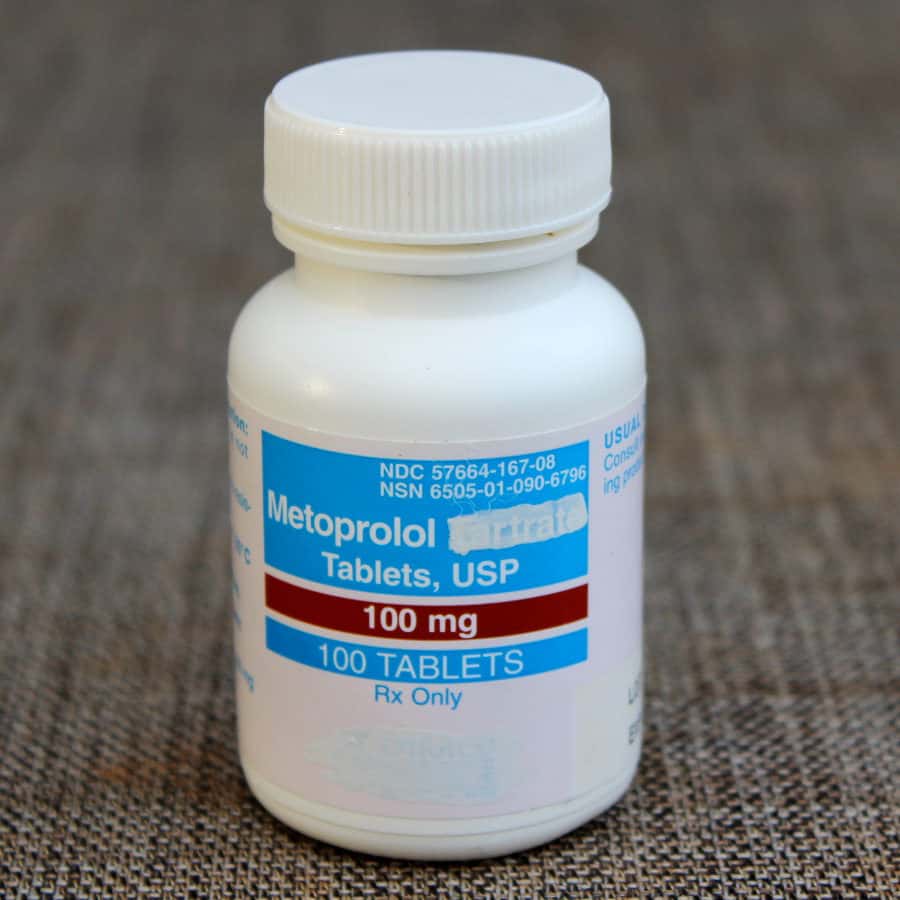
Metoprolol is a beta blocker heart medicine. It is perennially on the doctors’ top 10 hit parade of most prescribed medicines. Over the last decade, roughly 70 million prescriptions were dispensed each year. This medication is prescribed for chest pain (angina pectoris) heart failure, and after a patient has had a heart attack. We suspect, though, that the majority of dispensed prescriptions are for metoprolol for high blood pressure. How good is it and what are the risks? This reader is concerned about blood sugar:
Can Metoprolol for High Blood Pressure Raise Blood Glucose?
Q. I have been taking metoprolol for my high blood pressure for the past five years. Since then, my blood sugar has ranged between 108 and 111. I never had blood sugar levels that high before taking metoprolol.
My doctor is concerned. I believe that this beta blocker is raising my blood sugar. Are there any studies concerning such drugs and high blood sugar levels?
A. Beta blockers can raise blood sugar (Drug Intelligence & Clinical Pharmacy, April 1985). This is not a side effect that is generally recognized by health professionals as a problem. The official prescribing information mentions “unstable diabetes” almost as an afterthought and includes the disclaimer that “a drug relationship is not clear.”
Other researchers acknowledge that older blockers like metoprolol: “…are generally considered to worsen metabolic control in patients with diabetes…” (Cardiovascular Diabetology, May 25, 2010).
The exception seems to be carvedilol (Coreg). It may improve blood sugar management.
Metoprolol for High Blood Pressure and HbA1c:
A review of the medical literature (British Journal of Clinical Pharmacology, April 22, 2015) notes that beta blockers like metoprolol and propranolol:
“…increase blood glucose concentrations by inhibiting the release of insulin from pancreatic beta-cells…”
The authors conclude that beta blockers increase fasting blood glucose and can raise HbA1c (a measure of blood sugar control over a couple of months.
We’re not sure why this potential complication of beta Blockers has slipped under the radar. Some other adverse reactions may also be missed:
Other Metoprolol Side Effects:
- Fatigue, tiredness, dizziness
- Depression, mental confusion, memory loss
- Insomnia, nightmares
- Slow heart rate (bradycardia)
- Asthma, wheezing, shortness of breath
- Cold hands and feet
- Low blood pressure (hypotension)
- Digestive upset, diarrhea, nausea, flatulence
- Rash, itching
- Blood disorders
Metoprolol for High Blood Pressure?
Many health professionals no longer consider beta blockers like atenolol, metoprolol and propranolol the first choice for treating high blood pressure. Dr. Franz Messerli is one of the country’s leading experts in the field of preventive cardiology. He has written a lot about beta blockers like metoprolol for high blood pressure.
In one paper Dr. Messerli and his colleagues noted that beta blockers have not been found to be better than placebo when it comes to preventing sickness or death (Journal of the American College of Cardiology, Sept. 22, 2009). They point out that when used in the treatment of hypertension:
“…BB [beta blocker] therapy resulted in a 22% increased risk for new-onset diabetes mellitus, a known powerful risk factor for CV [cardiovascular] disease.”
Never Stop Metoprolol for high blood pressure suddenly
If a beta blocker needs to be stopped, it should be done gradually under careful medical supervision. Sudden discontinuation could cause chest pain or a heart attack. There are situations when metoprolol is absolutely essential, such as hypertrohic cardiomyopathy. In such cases, metoprolol should not be stopped.
If a doctor has prescribed metoprolol for high blood pressure, however, ask about the research supporting this use. Make sure the physician is aware of Dr. Messerli’s editorial comment in the Journal of the American College of Cardiology.
Your doctor should be able to prescribe a medicine that won’t increase your risk for diabetes.

